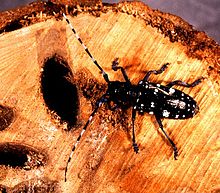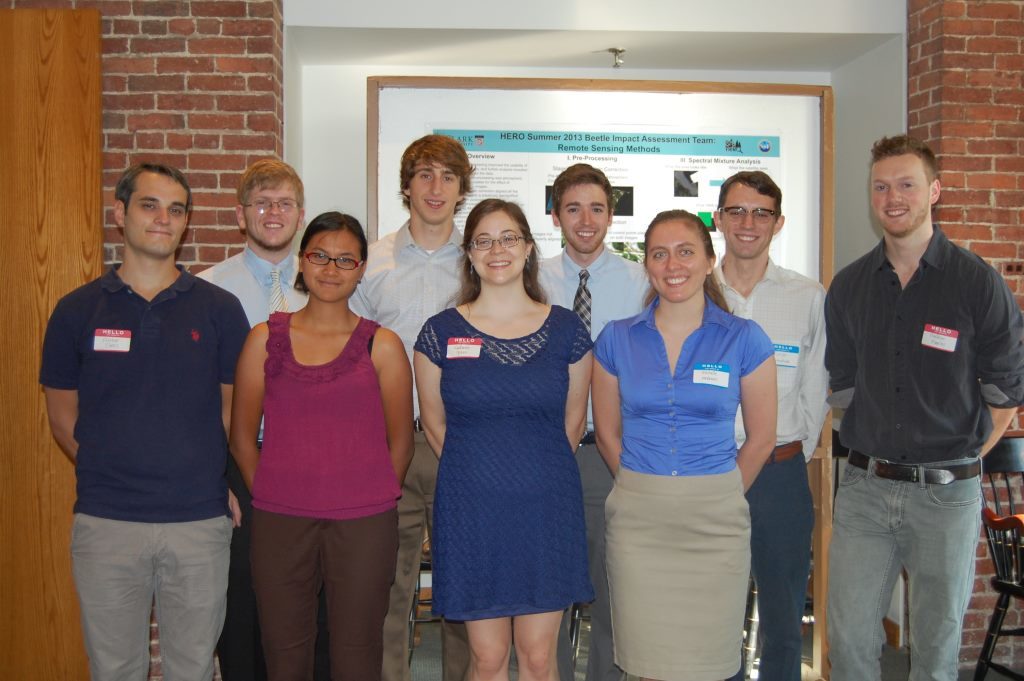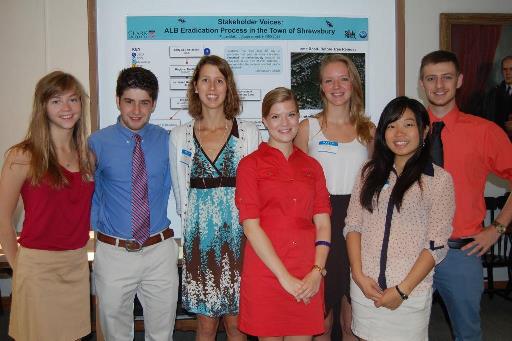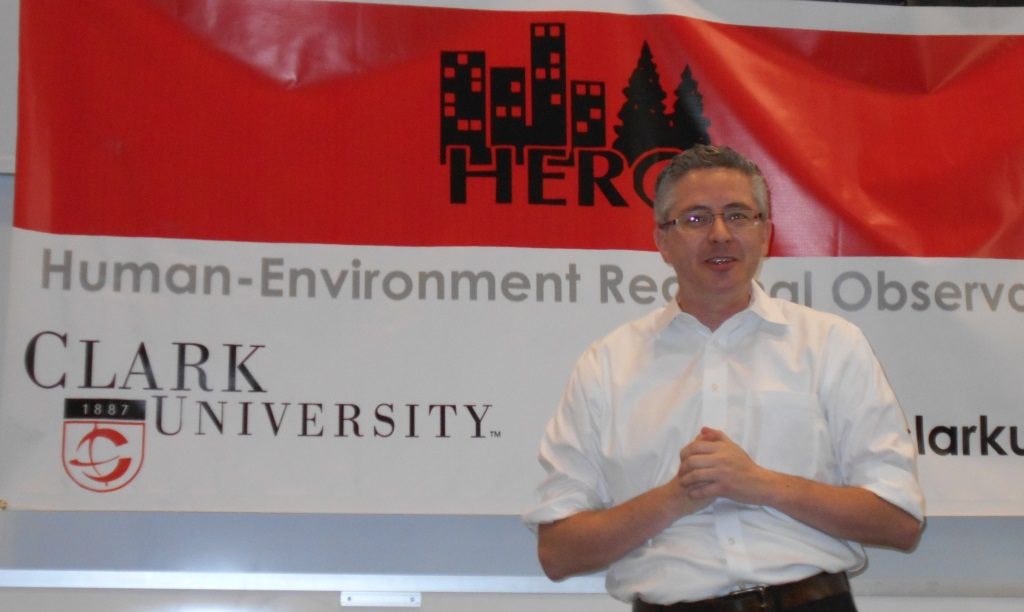
Five years ago, the Asian Longhorned Beetle (ALB) descended upon Worcester County and forced the removal of over 30,000 trees from the area, dramatically altering the lives in, and landscapes of many local neighborhoods.
In recent years, local organizations and city, state, and town officials have worked with residents to replant close to 22,000 trees. The unprecedented ALB infestation has allowed young researchers an opportunity to study the impacts of ALB on both the environment and social and political spheres of the quarantine zone, which comprises six neighboring towns.
For the second year in a row, students involved with the national Human-Environment Regional Observatory (HERO) program based at Clark have conducted research on the impacts of the ALB infestation on urban and ex-urban forests and communities. The research is being funded by a three-year, $329,992 grant from the National Science Foundation, received last June.
On Thursday, August 1, 12 undergraduate student researchers (six from Clark and six from various universities across the U.S.) and four Clark graduate student managers, who were divided into two groups, shared data they collected on physical (temperature) changes to the affected areas and data they gathered from residents, policy makers and government officials on what they considered to be the losses and gains of the ALB infestation.
City residents, members of the Clark Community, and representatives from city, state and federal organizations working on the ALB problem in Worcester and the surrounding towns convened afterward and held a stakeholder summit to discuss the findings and identify new areas of concern.

The student researchers making up the first group, known as the Beetle Impact Assessment Group, examined how temperature changed over the entire quarantine zone. Among other things, this group used satellite imagery to observe the changes in temperature, vegetation and bare ground exposure (namely roads, rooftops and soil that had been exposed by the removal of tree canopy) at several sites in the city at the same time on any given day.
“The loss of the trees increased the temperature by 3 degrees Celsius or 5 degrees Fahrenheit on average, which is huge in the span of three years,” said Clark Junior Michelle Andrews ’14.

HERO fellows in the “Place-Making Assessment Group” explored how the physical and environmental changes resulting from the ALB infestation affected area residents and policy-makers. Members of this group conducted interviews and focus groups with policy makers, and Worcester and Shrewsbury residents to get their data.
According to Clark Sophomore Joey Hersh ’15, residents reported an increase in heating costs during the winter and cooling costs during the summer and more frequent power outages due to changing wind patterns.
Residents also said “privacy was decimated,” their property values were lower, and that their neighborhoods weren’t as aesthetically pleasing as before. Residents also shared how the tree loss impacted their social lives: in some cases, neighbors who used to visit under a particular tree canopy stopped meeting up, and that it was so hot on some residents’ backyard decks they couldn’t sit there anymore.
HERO fellows did receive positive news from policymakers and government officials they interviewed. Because of the ALB infestation, residents now recognized the importance of trees, and they took the initiative and became involved in environmental issues. They also reported that residents were pleased with the selection of trees that were made available to them as replacement trees, and that residents became proactive with issues in their neighborhoods. They had improved morale and realized the importance of involvement in their neighborhoods, and inspired their neighbors to get involved as well.

Clark Associate Professors of Geography John Rogan and Deborah Martin co-led the 12 undergraduates; both spoke before the student presentations. Martin mentioned the importance of the ALB research, and how sharing the findings through stakeholder summits improved the research.
“After last year’s summit we incorporated stakeholder feedback into the new research questions,” she said. “This is very much a collective experience,” said professor Rogan. “We are working on a local issue of consequence. We aim to conduct research and really engage students in real-world problems.”
And, because Clark specializes in geographic data, it’s fitting that the university serves as a repository for this information, he said.
Other HEROs from Clark include: Sean Cunningham ’14, Gaia Khairina ’15 (O’Connor Fellow), Michino Hisabayashi ’15 (Mosakowski fellow) and Cody Litchfield ’14. Non-Clark students: Regan Fink ’14 (Kenyon College, Ohio); Katherine Green ’14 (UC Davis); Matthew Hess ’14 (Bloomburg University, PA); Paul Quackenbush ’14 (Middlebury College, VT); Michelle Ritchie ’14 (Southern Connecticut State Univ., CT); and Carlee Shults ’14 (Whittier College, CA). HERO managers: Shannon Palmer, Matt Manley, A.J. Shatz and Arthur Elmes (PhD student).
Click here to learn more about the HERO research program. Martin and Rogan shared research conducted by last year’s HEROs and knowledge they gained from the previous stakeholder summit in their op-ed that appeared in the Worcester Telegram on May 21, “Trees under multiple threats.”
